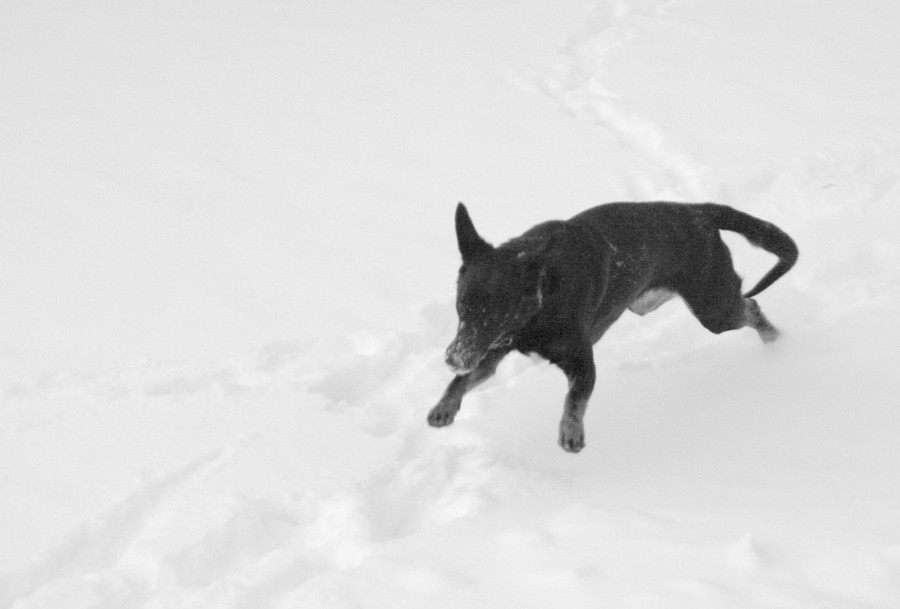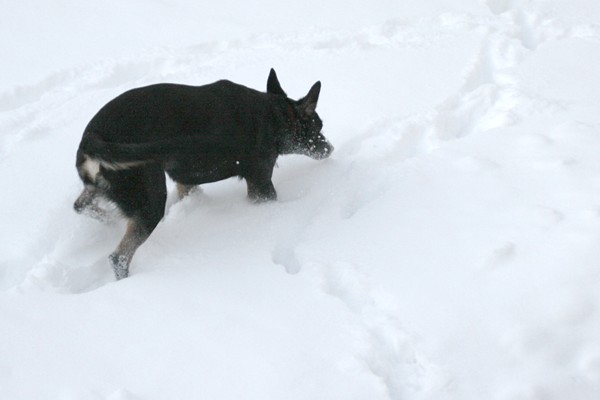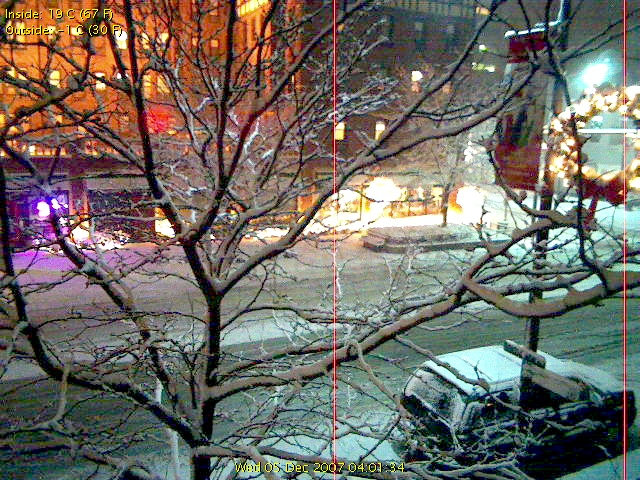The paper's signed, forget the pens
Wonder if we'll ever meet again?
—Aimee Mann
Apparently this is the first time since records have been kept (back to 1924) that we've had four consecutive days of gleeshy, sleety, nearly-frozen weather.
I just got very good news for Parker: for the first time in his entire doggy life, he is free from all intestinal parasites. No more bad butt.
This is one of my favorite milestones. Thanks to the analemma, tonight's sunset (4:20 pm) is the earliest of the year in Chicago. Of course, the sunrise still gets later every day until January 4th. At least tomorrow we'll have just a smidge more evening light than we'll have today.
The Stanford law professor is focusing on corruption as a way of combating creeping copyrights:
Mr Lessig has concentrated for a decade on copyright law and its interaction with the internet. So he left some people feeling confused earlier this year when he announced a new focus for his campaigning efforts: tackling corruption. Not everyone understood that this change in academic and activist emphasis is more of a shift in strategy than in substance.
For years Mr Lessig has presented legal arguments against excessive copyright extensions. But he says lawmakers are so in thrall to big-media lobbyists that they do not even realise that counter-arguments to copyright extensions exist. Even though Britain's Gowers Review, published in 2005, argues against such extensions, and eminent economists such as the late Milton Friedman have declared the importance of copyright limits to be a “no brainer”, Mr Lessig says legislators are clueless about “an issue that any rational policymaker has no problem understanding.” Swayed by campaign contributions from vested interests—such as film studios, music companies and book publishers—America's Congress has lengthened copyright terms 11 times in the past four decades, he observes.
Princeton economist (and New York Times columnist) Paul Krugman thinks Tresury's subprime plan won't do much:
[W]e're almost surely looking at less than $10 billion in losses avoided. Meanwhile, estimates of subprime losses to investors are currently running in the $300 -$400 billion range. So the back of my envelope suggests that this plan is a drop in the bucket.
When we woke up this morning the temperature was -16°C. Did Parker care? He did not:


This one from the Washington Post. Unlike the one I mentioned from WQAD, WaPo's limits you by party, and to the top 5 in each.
I came up all Edwards again, mostly because of his positions on health care.
At the moment, a stiff wind is blowing snow straight down Chicago Avenue. It's -2°C. Overnight 13 cm of snow covered the ground, and people are just now shoveling it off the sidewalks. Here's the forecast:
Temperature rising to near -1°C by noon, then falling to around -4°C during the remainder of the day. Blustery, with a north northeast wind between 32 and 40 km/h. Chance of precipitation is 90%. Total daytime snow accumulation of 5 to 10 cm possible.
Tonight: Mostly clear, with a low around -9°C. Northwest wind between 16 and 14 km/h.
The weather actually made the front page of the Chicago Tribune:
"It's still coming down—all the way to Ottawa," said National Weather Service meteorologist Bill Wilson.
It will also stay around for a while. Temperatures won't reach significantly above freezing before Saturday, he said.
The Illinois Department of Transportation warned motorists to take it easy—and if at all possible to take trains to work this morning.
So instead of my usual walk-Parker-to-daycare-bus-to-the-office routine, I drove. I think this was reasonable, even given the ten minutes it took to dig my car out this morning.
I feel guilty about it, but I'll get over it.
No sooner had our first snowfall melted when we started to get our second one:

On the walk back from Inner Drive Technology World Headquarters he forgot his leash discipline a little, as when he nearly yanked my arm out of its socket when he saw a rabbit bounding through the snow. He was just so excited to see snow he couldn't contain himself.